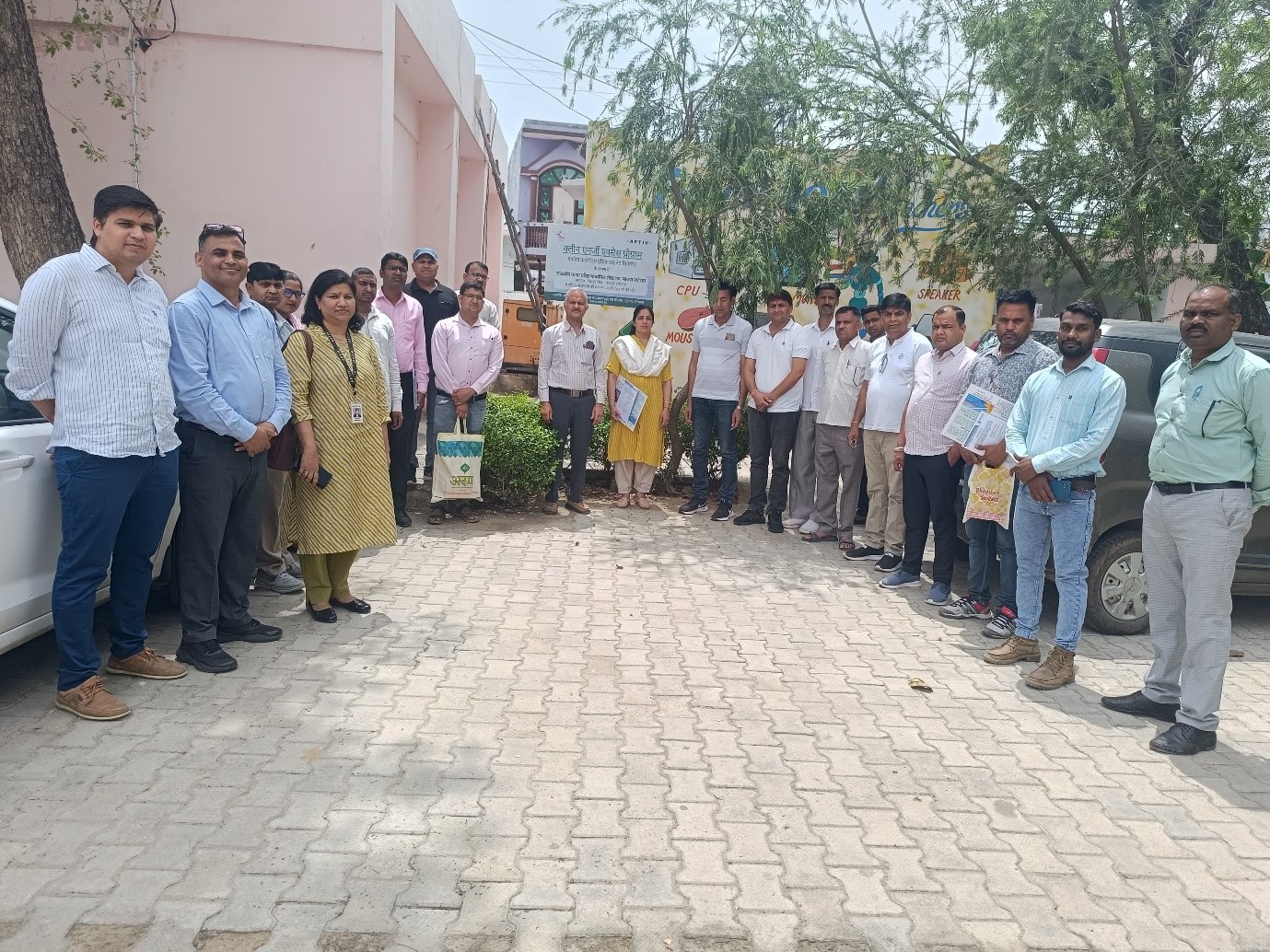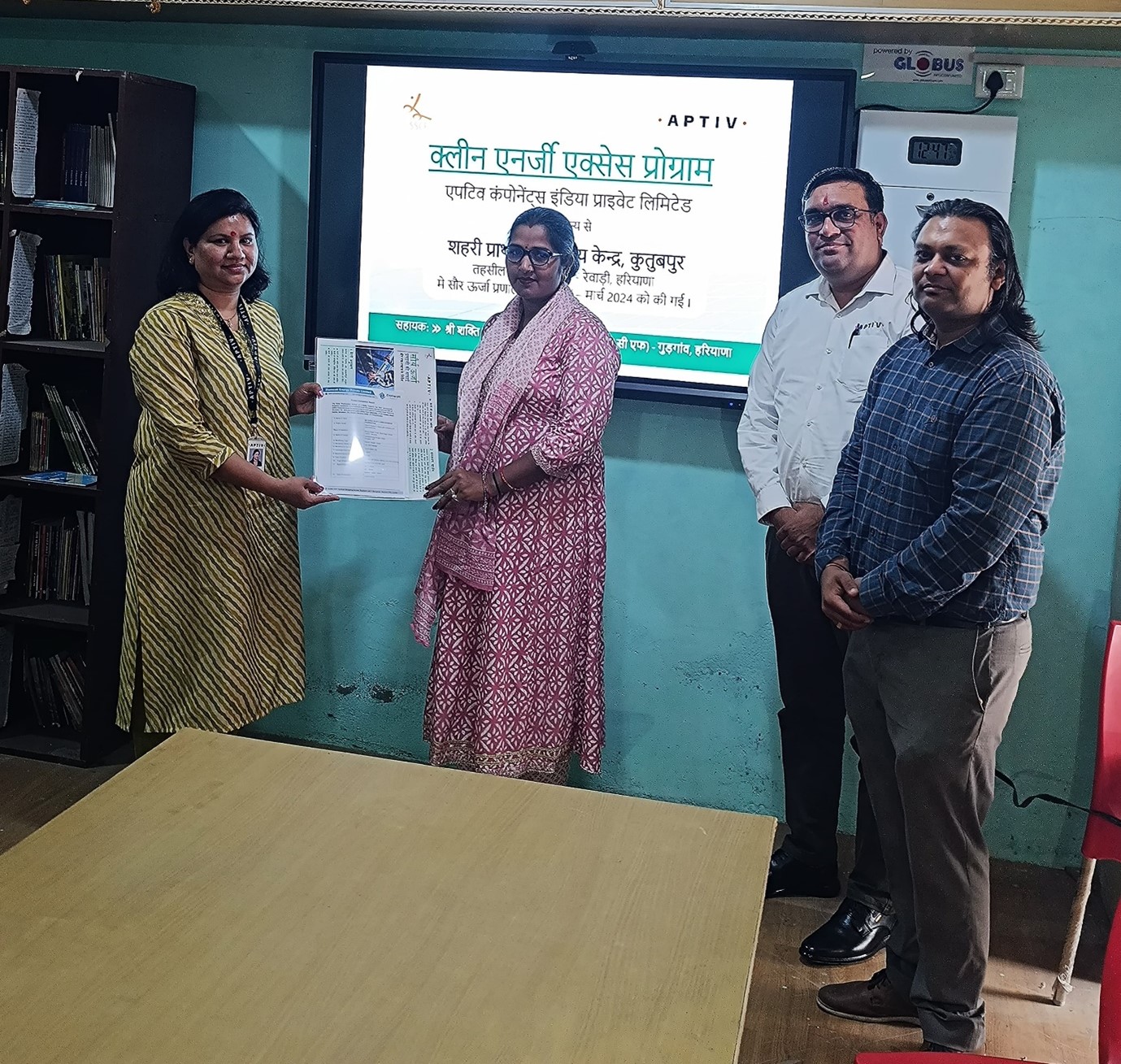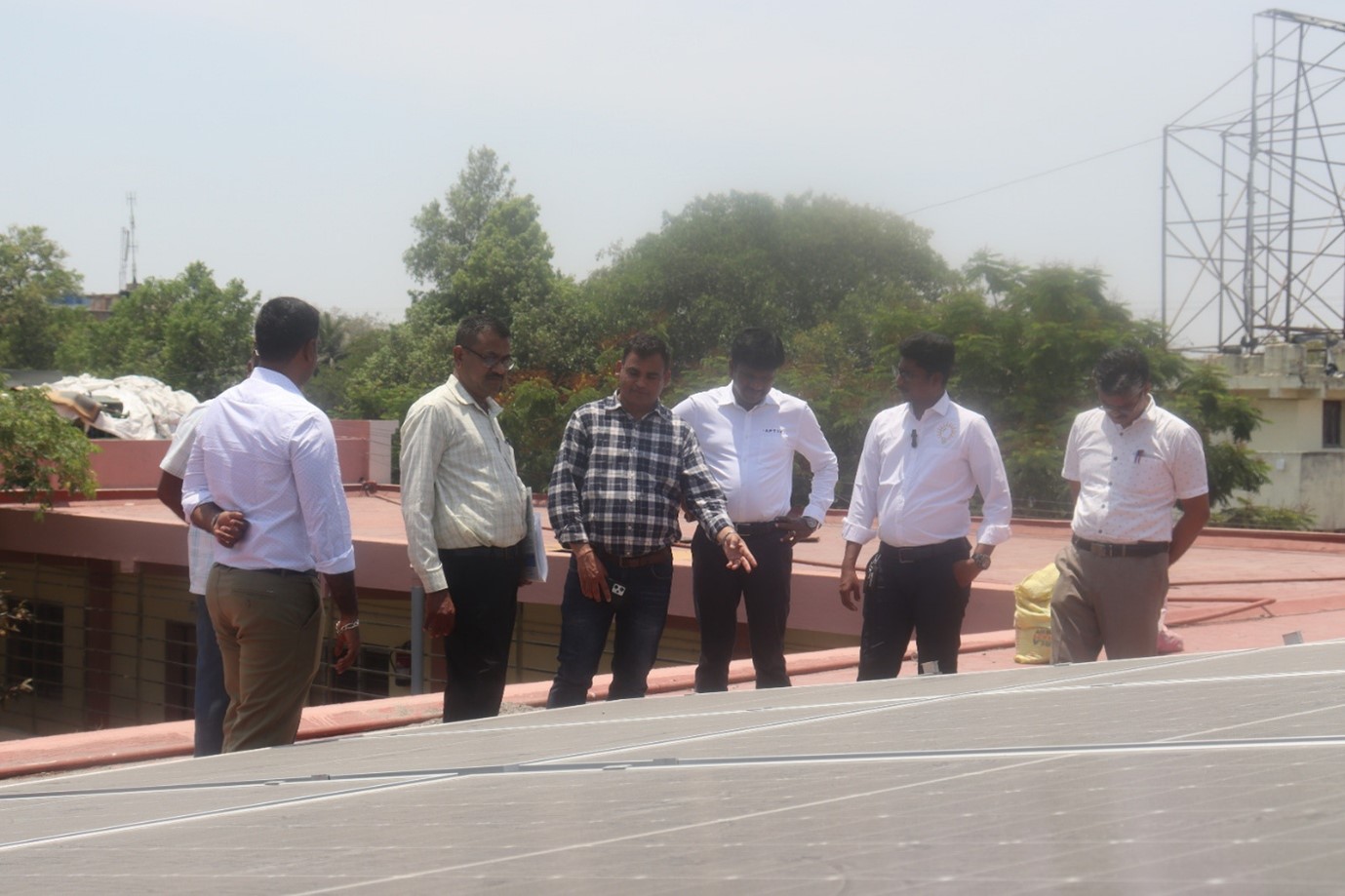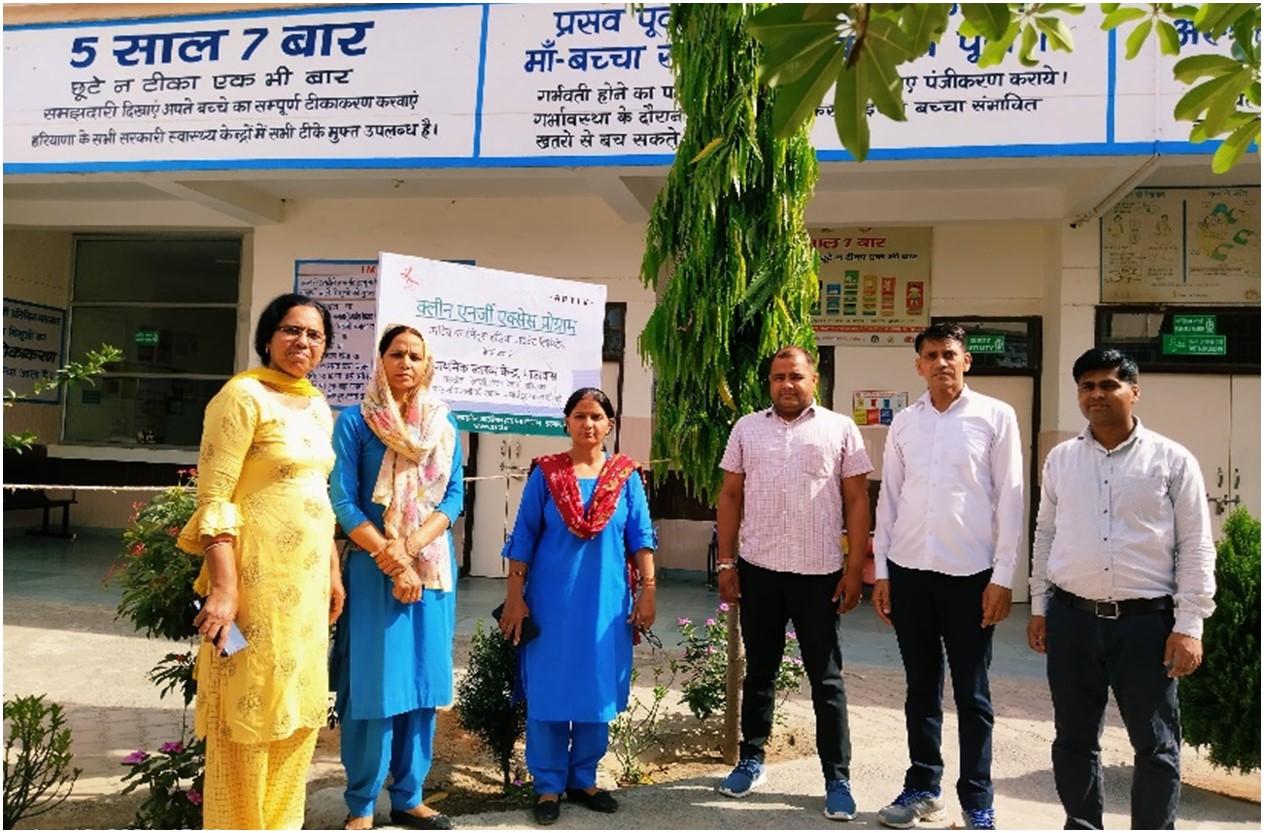Clean Energy Access Program - Phase 4
Under APTIV's CSR initiative, SSCF installed rooftop solar PV systems in 20 schools and 8 PHCs across Haryana, Maharashtra, and Tamil Nadu, improving energy access for education and healthcare services. This initiative ensures uninterrupted power supply, enhancing learning environments in schools and supporting essential healthcare services, while promoting environmental sustainability.
Clean Energy Access Program - Phase 4
Shri Shakti Consciousness Foundation (SSCF) has implemented the clean energy access program through the CSR fund of APTIV Components India Pvt Ltd. In schools, continuous electricity is needed for better delivery of education services promotion of digital & IT education, running information & communication technologies (ICT) equipment etc. In India, schools ensure last-mile delivery of education services to the community, that is, at the village level. The poor access to electricity has negative impacts on health, quality of life, education, and economic productivity and propagates gender inequality issues. To overcome inequalities in rural India, there is a need to improve the access to electricity The extent of power deficiency across villages could hamper the provision of healthcare and education services in the country.

Benefits to School, PHC's and Environment




Clean Energy Access Program provides improved energy access to Schools and Primary Health Centres (PHC) by installing the Rooftop Solar PV system. Under the CSR initiative of APTIV, SSCF completed the implementation of solar PV systems for improved access to healthcare and education services at 10 Schools & 5 PHCs in Haryana (Rewari), 5 schools & 3 PHCs in Maharashtra (Pune) and 5 schools in Tamil Nādu (Kanchipuram). Through this initiative, SSCF has been able to mobilize the support of local communities, medical staff, schoolteachers, and other staff members and helped to build a sense of ownership amongst the villagers for this project.
By providing access to clean energy SSCF and APTIV will be able to directly benefit approximately 1,25,606 students, staff of schools & PHCs and patients visiting the PHCs. The total indirectly benefited people are more than 4,29, 575 people (total population served by the benefited schools and PHC).
